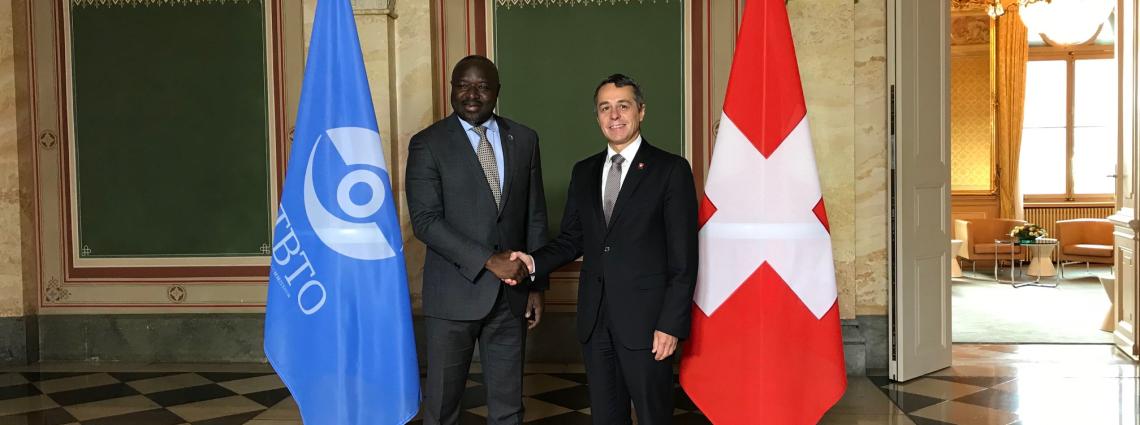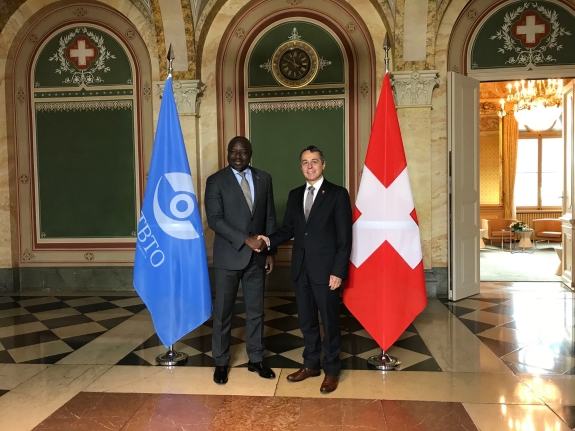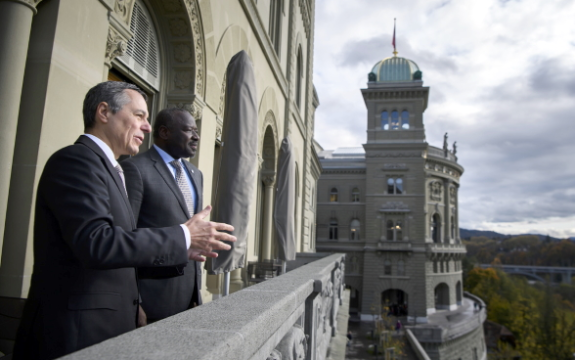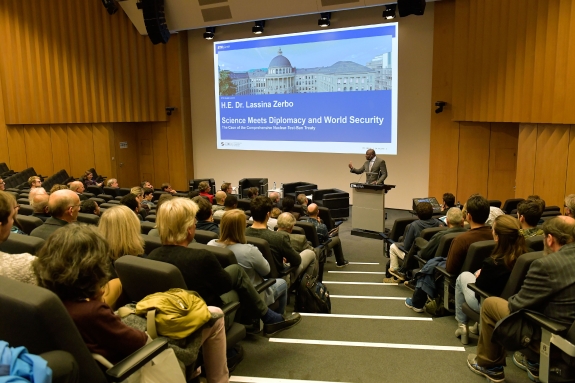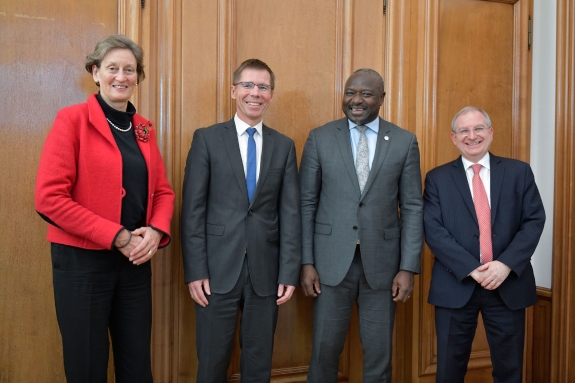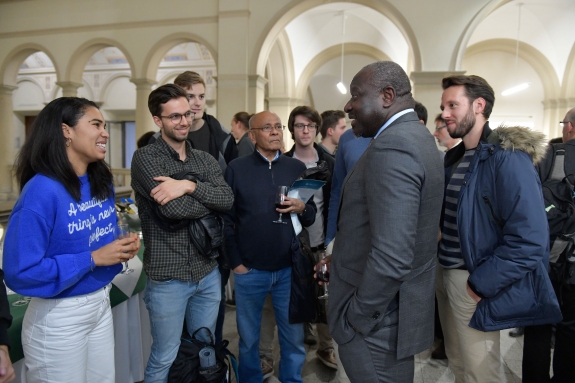20 years after ratifying, Switzerland celebrates CTBT as unique model
Switzerland is marking the 20th anniversary of its ratification of the Comprehensive Nuclear-Test-Ban Treaty (CTBT), celebrating it as a unique model for collaboration between science and diplomacy to address global security challenges.
Welcoming Comprehensive Nuclear-Test-Ban Organization (CTBTO) head Lassina Zerbo to Berne on 5 November, Federal Councillor and Head of the Federal Department of Foreign Affairs (FDFA) Ignazio Cassis underlined his country’s unwavering support for the Treaty and the importance of science informing policy.
“The Comprehensive Nuclear-Test-Ban Treaty (CTBT) has created a model of scientific cooperation that is unique of its kind,” the FDFA said in a news release. “This is an example of how ‘science-diplomacy’ collaboration can contribute to resolving political problems… In this way, science and diplomacy contribute jointly to international security and public protection.”
Switzerland was the 48th state to ratify the CTBT, on 1 October 1999, and the 24th of the 44 ‘Annex 2’ nuclear technology-holding countries that must ratify in order for the Treaty to enter into force. As part of the CTBTO’s International Monitoring System to detect nuclear explosions, it hosts an Auxiliary Seismic Station (AS102) in Davos, run by the federal Swiss Seismological Service (SED).
The SED is based at the science and technology university ETH Zürich, where Zerbo discussed recent cross-disciplinary science and diplomacy projects with the university’s Rector, Professor Sarah Springman, and President, Professor Joël Mesot.
Zerbo reinforced the science diplomacy theme with a public lecture at the university, entitled ‘Science meets Diplomacy and World Security – the case of the Comprehensive Nuclear-Test-Ban Treaty’. Just as science underpinned the CTBT and its unique International Monitoring System to verify that no nuclear explosion goes undetected, Zerbo said, science can also help overcome the deficit of trust in today’s global security framework.
Stressing that the language of science is universal and transcends political barriers, Zerbo encouraged students to create cross-disciplinary platforms to examine world problems from all angles.
An exhibition on the CTBTO and how Switzerland supports it, hosted by ETH Zürich, has been extended beyond its original closing date of 7 November.
Media coverage:
- Op-ed by Iganzio Cassis (in French);
La diplomatie scientifique, un outil novateur pour la Suisse - SFR Radio-Interview of Dr. Zerbo (in French)
6 Nov 2019
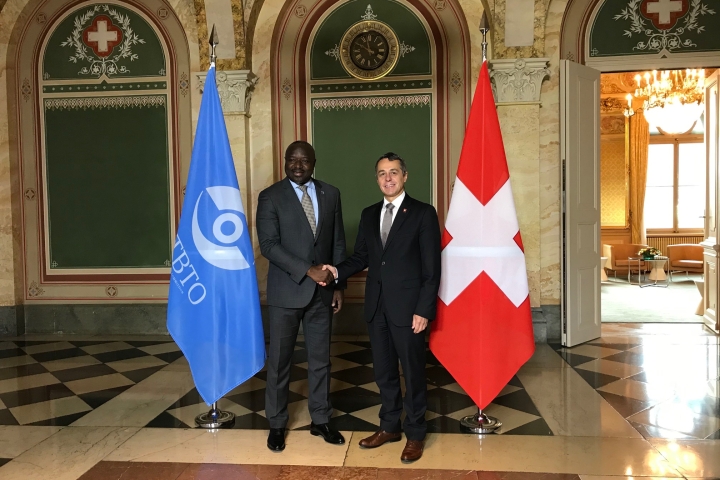
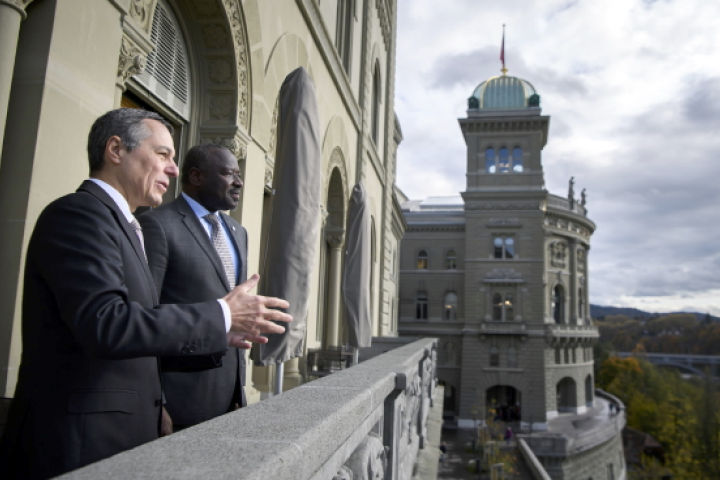
Lassina Zerbo and Ignazio Cassis, Berne (Photo credit: copyright FDFA)
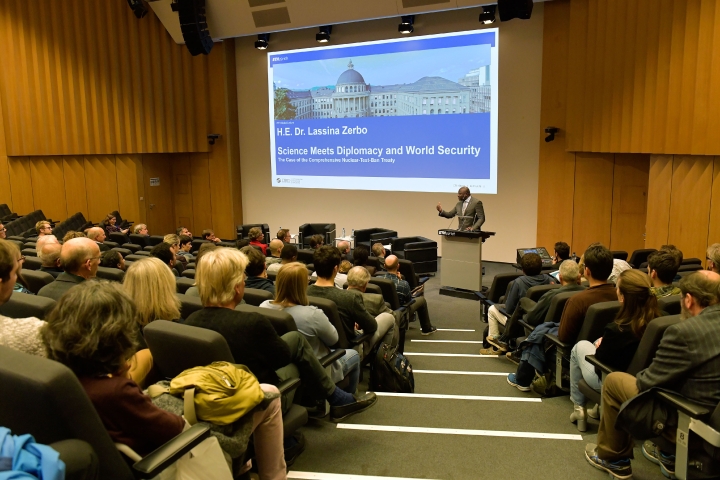
Dr Zerbo delivers a lecture at ETH Zurich (Photo credit: Andreas Eggenberger)
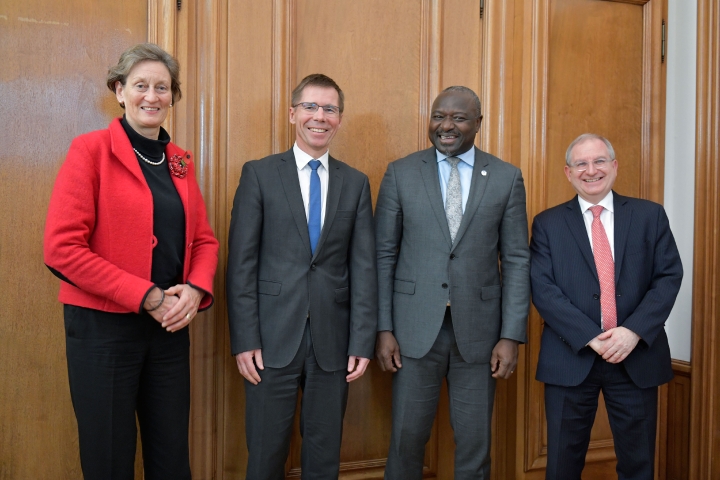
Sarah Springman (ETH), Joël Mesot (ETH), Dr Zerbo and Amb B. Laggner at ETH Zurich (Photo credit: Andreas Eggenberger)
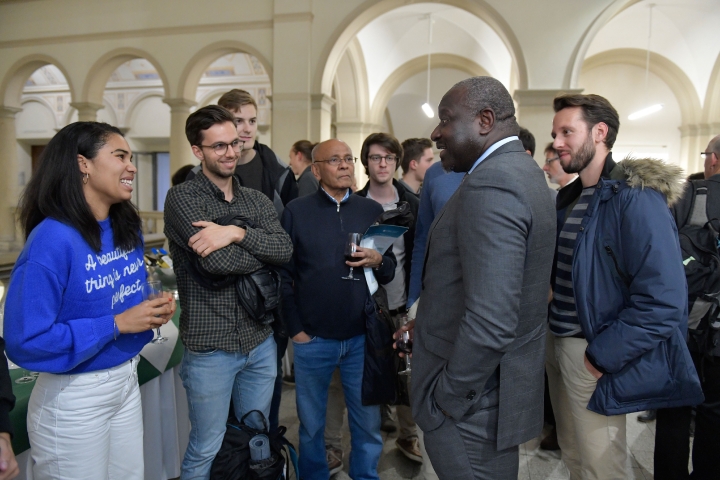
Lassina Zerbo engages ETH Zurich students after his lecture (Photo credit: Andreas Eggenberger)
